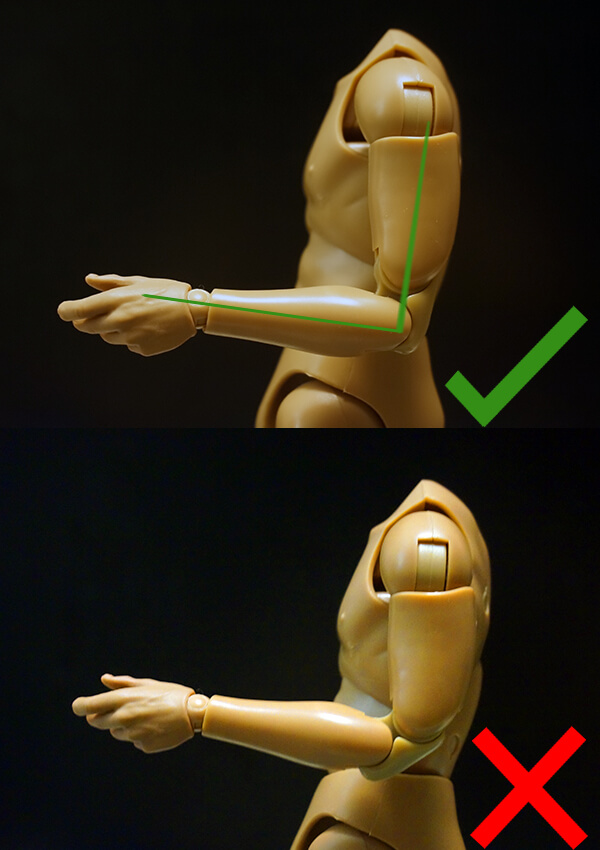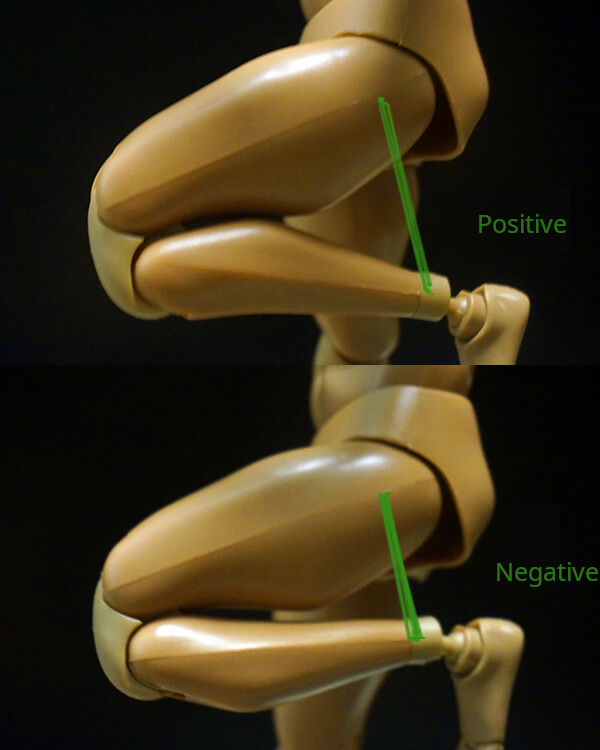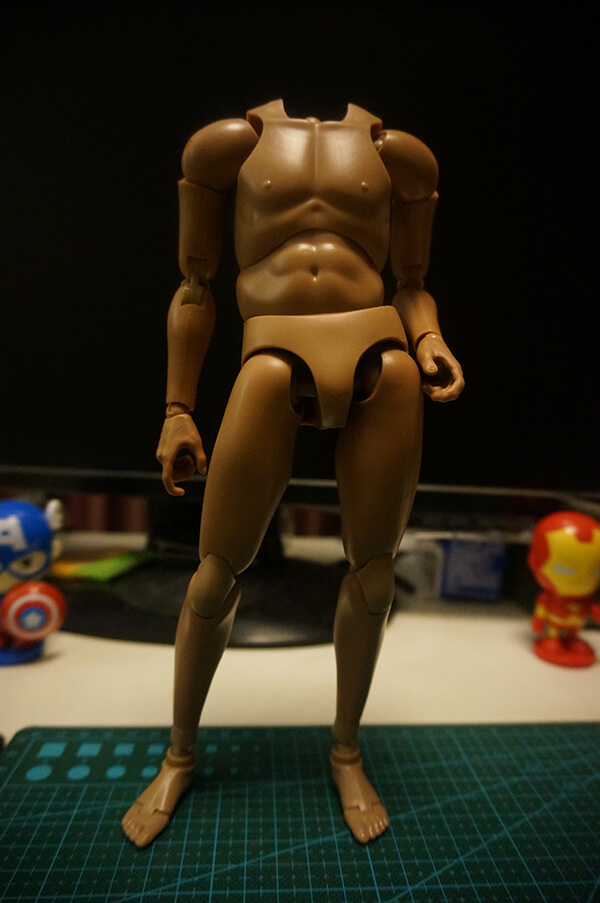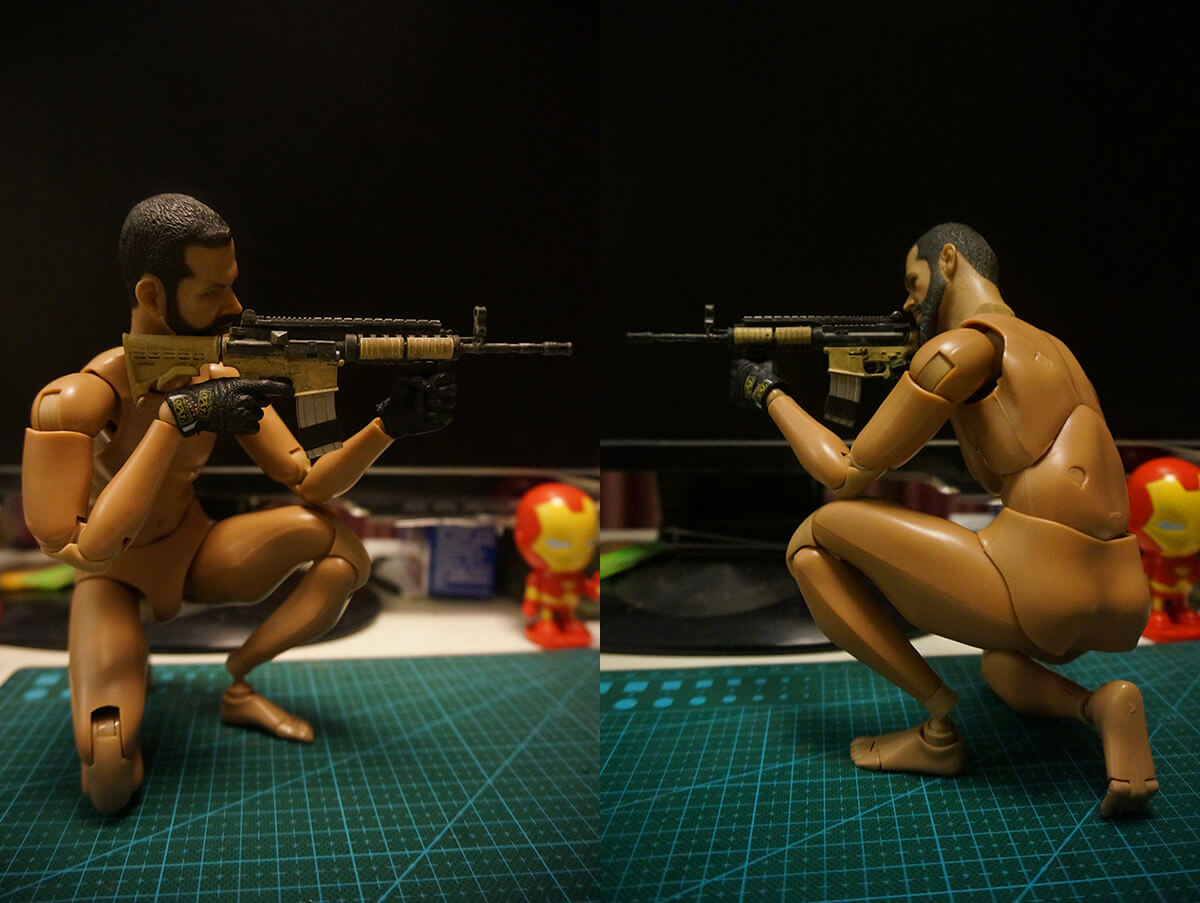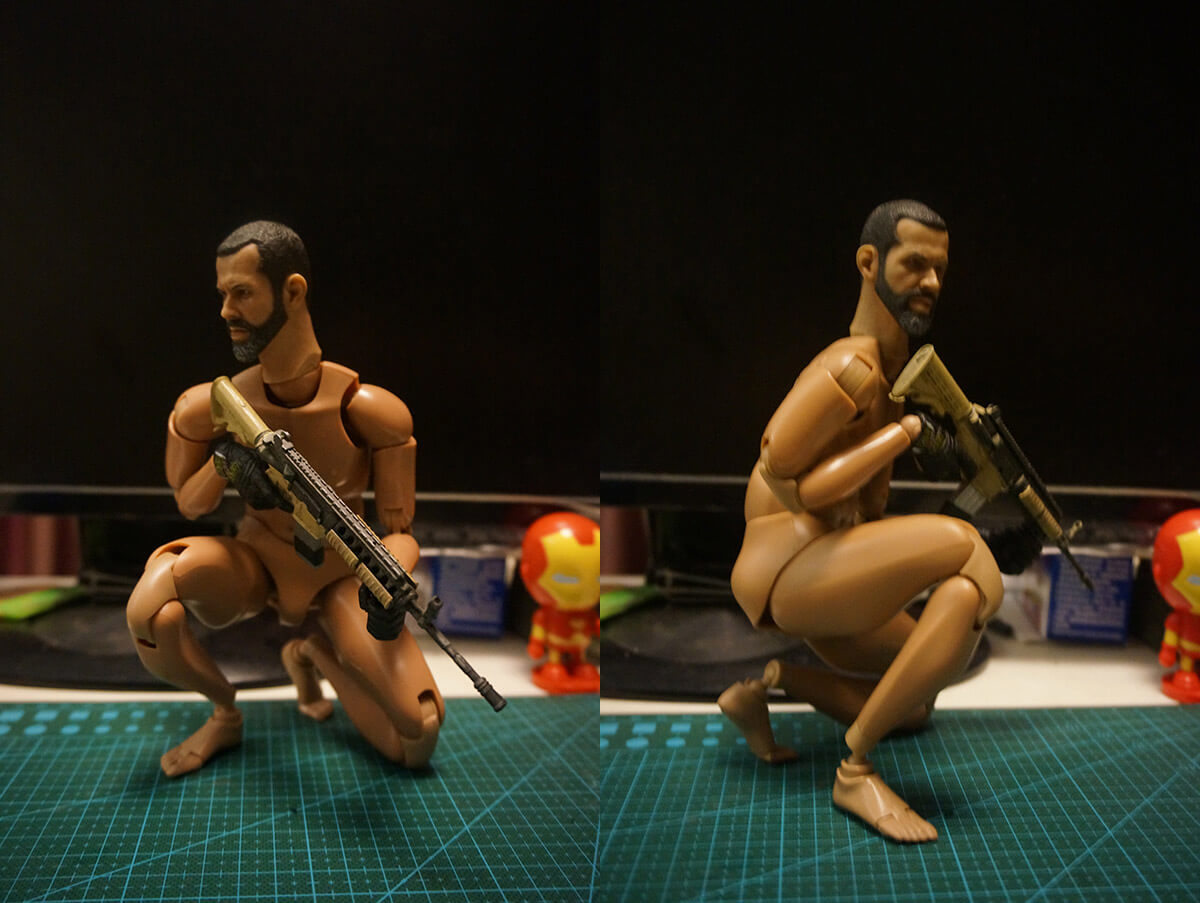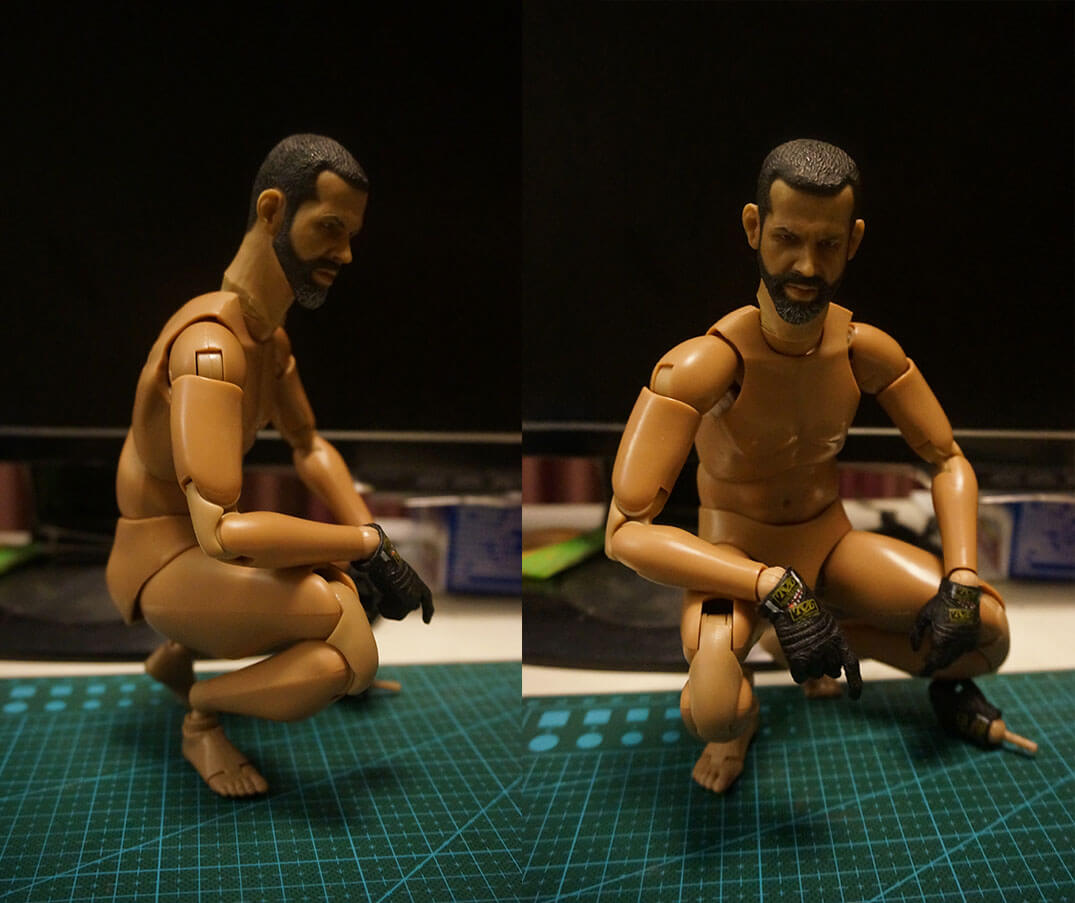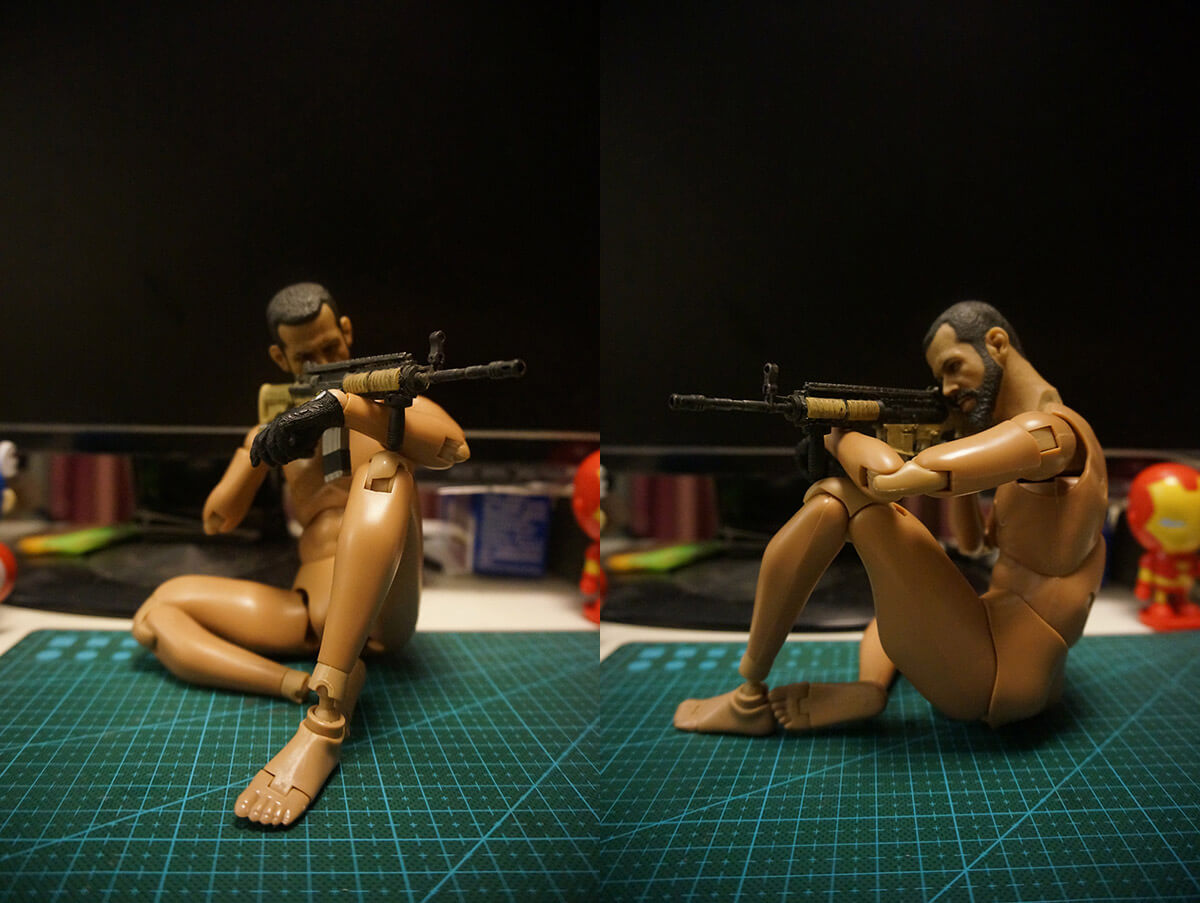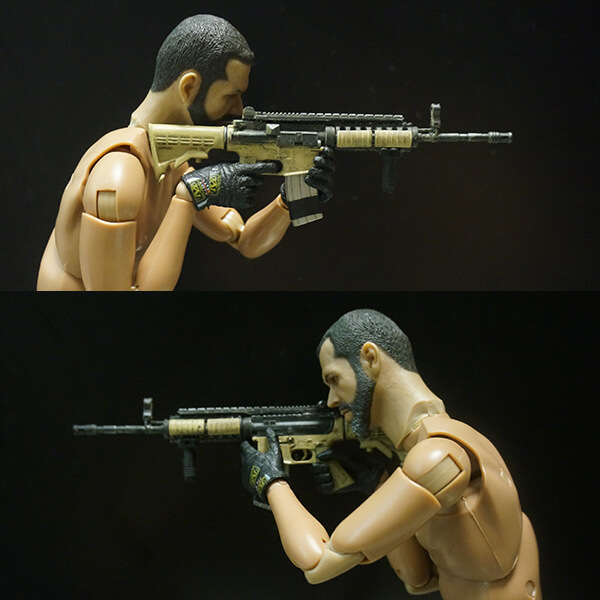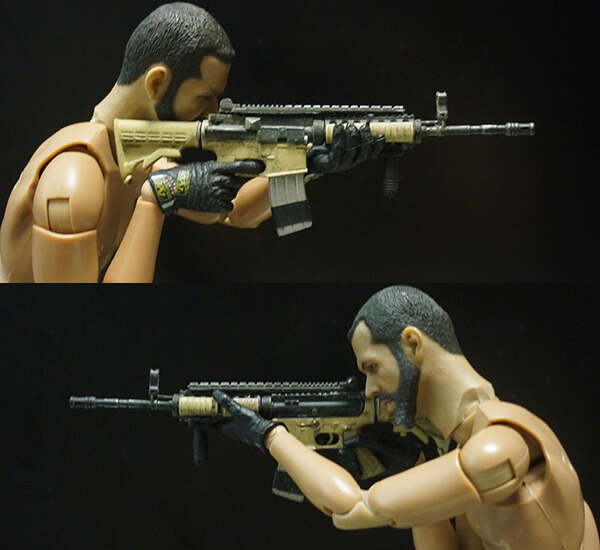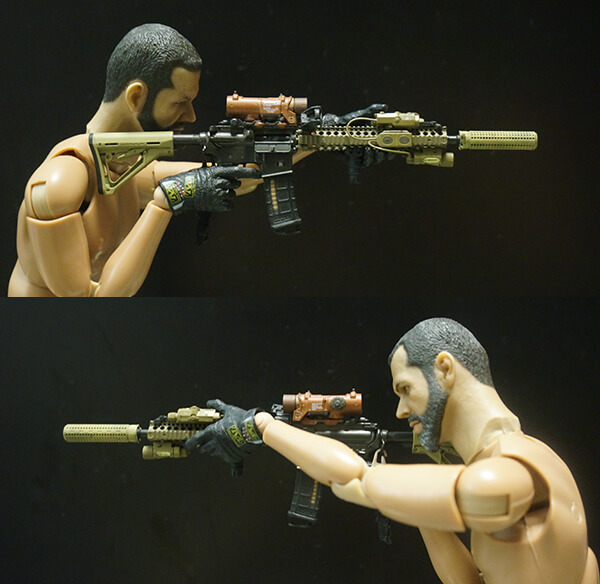I see a lot of friends who work hard and have wonderful characters, but the rigid action makes them look like toys without the character’s temperament. I’m always sorry for this.
Today I want to share some of my own experiences on How to Create A Natural Pose for Your Action Figures.
This time I will use the body DAM 78006 as an example. The figure from DAM uses the same body as the Soldier Story figure, but with less mobility at the waist. This affects its ability to maintain a squatting posture. However, one advantage of the DAM body is that it doesn’t require removing calf muscles for transformation–this increases its range of motion overall. If you want to do more complex transformations like those seen in Soldier Story figures, you’ll need to remove the part attached to their calves near the belly first.
In addition, this head sculpt comes with a neck that impacts shooting angles for pictures/videos, so please bear with me!
First of all, Creat a natural standing position
We are discussing the natural state of standing, after all–the daily stance of the military is not with their chest up and hips. Most of them stand in a more relaxed posture which is closer to natural.
Many people make the mistake of thinking that…
- S-shaped spine with stomach pushed forward is the most relaxed human standing posture.(DO)
- Feet shoulder-width apart.(DO)
- Toes pointing in the same direction as knees, eight facing outward.(DO)
- Elbows pulled back–this is a common fault that makes the soldier look very harsh(DONT)
Pay attention to the orientation of the elbow
The human arm consists of two sections, the action figures, which enable maximum mobility using a double joint as well; and the upper arm, which keeps the elbow at right angles. This difference in the dressing will be significant–after dressing, the arm will resemble a bent arc rather than an angle with no bone.
The following is a comparison of the calf before and after the reversal. You can see that there is quite a large difference in the angle of the leg bend. After the flip, the foot’s taut straight heel can almost stick to the buttocks. In addition, wearing pants will not have much impact on the body figure (note that left and right legs should be exchanged because the outer contour of the calf is more prominent. If not exchanged, it will become prominent on the inside). The missing part of the sponge in the inner calf area can also fill up. By doing this way,the movable parts on the action’s figure body will have a qualitative leap.
This is another relaxed standing posture where your back is S-shaped and mostly crossed, with one hand in your pocket.
Here are some basic shooting actions
Standing Shooting position
- For the standing position, you must lean your body forward with the center of gravity leaning also forward (to avoid recoil) and keep your body low to the ground (staying steady).
- Hold the gun in your right hand so that the butt is resting against your shoulder close to we’re talking like realllllyyyy close to your cheek
- Lowering your right elbow as much as possible until it reaches or almost touches your chest
- The muzzle should be pointing towards almost perpendicular the front of body ifyou’re firing it forwards
Shooting position – Kneeling
- Your kneeling leg should be bent at maximum amplitude.
- For support, your thighs should be as close to your abdomen as possible (DAM’s body has already reached the limit here, but for Soldier Story’s body the crotch soft rubber cut-off part can allow for greater amplitude.)
- When you extend your elbows out to the side of your body, they should touch your knee on the same side.
Shooting position – Squatting
The primary issue with this movement is that the squat is not steady and must be supported by outside forces.
Shooting position – Sitting
This action does not need much explanation, as the movement pattern is quite straightforward. Here is the most common way to do it: Waist as far forward as possible, the center of gravity too far back will look unstable.
Next, we share several hand gestures for holding a gun
- Hold the magazine
While there are specially designed grips for this action, most people don’t use them because they’re not common in soldier action figures.
2. Traditional style
This move is a classic and requires no explanation, the gun hand gesture
3. C-clamp grip
One of Chris Costa’s most well-known moves is gripping the front of a rifle’s quad rails with both arms straight.
This gesture can almost only be achieved using Soldier Story gloves, as the hand texture on other brands’ gloves (e.g., DAM, Hot Toys) is much too hard and would likely result in breaking the weapon if one tried to stretch them.
One last point about “line of sight”
It is best to have the line of sight focused on what the soldier is looking at, not appearing as if daydreaming with an unfocused gaze.
For example, when changing magazines blind searching complicates the process, slowing reaction time in preparing for an enemy confrontation. It’s also important to lift one’s head while moving forward instead of staring at the ground.
line of sight
Conclusion
Use the tips above,How to Create A Natural Pose for Your Action Figures, next time you’re photographing your action figures and you’re sure to create some natural looking shots that show off both your figure and your photography skills. With a little bit of time and patience, anyone can learn to take great photos of their action figures. So get out there and start snapping away!


